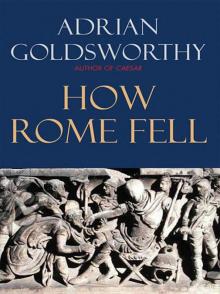 The Fort
The Fort Hadrian's Wall
Hadrian's Wall Cannae
Cannae Pax Romana
Pax Romana The Encircling Sea
The Encircling Sea Caesar
Caesar The Fall of Carthage
The Fall of Carthage Antony and Cleopatra
Antony and Cleopatra Brigantia
Brigantia Send Me Safely Back Again (Napoleonic War 3)
Send Me Safely Back Again (Napoleonic War 3) True Soldier Gentlemen
True Soldier Gentlemen Run Them Ashore
Run Them Ashore Beat the Drums Slowly (Napoleonic War 2)
Beat the Drums Slowly (Napoleonic War 2) Send Me Safely Back Again
Send Me Safely Back Again How Rome Fell: Death of a Superpower
How Rome Fell: Death of a Superpower True Soldier Gentlemen (Napoleonic War 1)
True Soldier Gentlemen (Napoleonic War 1) Vindolanda
Vindolanda All in Scarlet Uniform (Napoleonic War 4)
All in Scarlet Uniform (Napoleonic War 4) Beat the Drums Slowly
Beat the Drums Slowly Caesar: Life of a Colossus
Caesar: Life of a Colossus